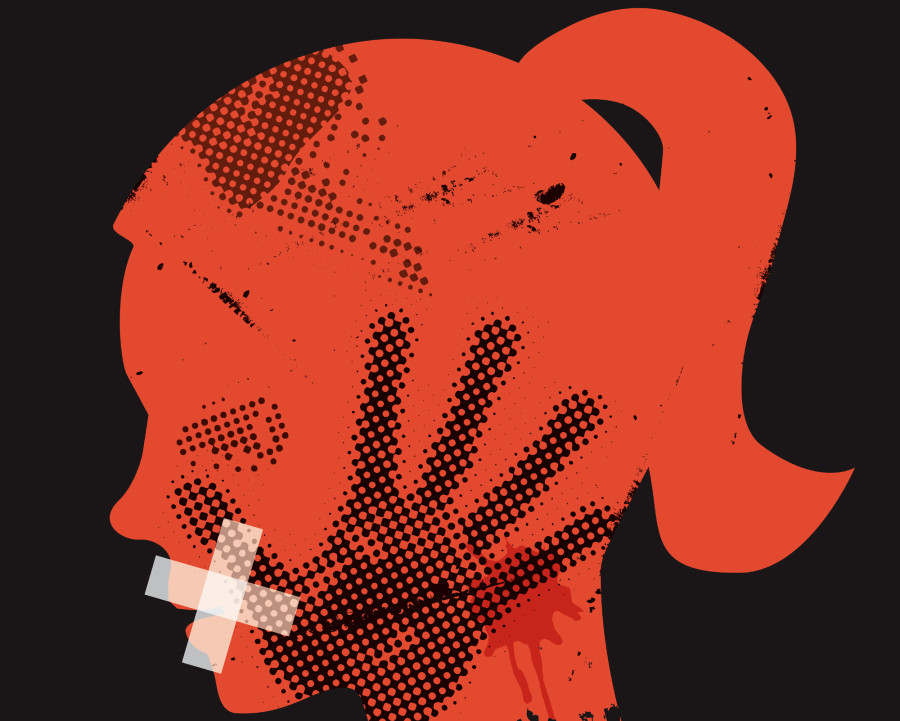Opinion
Better change your scene
The time has come for the theatre fraternity to act to make the stage safer for all.
Deepesh Paudel
Intimacy is one of the quintessential attributes in the field of theatre. Whether it is to create an organic and immersive chemistry between thespians or to build a captivating bond with the audience, proximity in the black box is often required. When actors exchange emotions and adrenaline in close circumstances, theatre experiences become palpable and aspirational. However, it is when such closeness gets misconstrued and exploited that breaches are bound to happen. The recent developments under the radar of #MeToo movements, both globally and in Nepal, are evidences of many intentional exploitations.
Last week, a weekly tabloid published a write-up containing claims of accusations against several stage artists, including the much revered Sunil Pokharel. The news came as a shocking revelation to many theatre aficionados, which eventually led to a mixed outburst on social media. For many followers, who up until then had perceived theatre as a sacred field, the unprecedented event came as a pinprick in their belief. Although instances of harassment and exploitation aren’t new to the industry, nothing of such magnitude and precision had reached the mainstream headlines. When incidents like these come to the forefront, it is up to the fraternity to introspect its practices, and also to reconcile issues in order to create a just atmosphere.
The power distance
Dutch social psychologist Geert Hofstede developed the power distance index to show how societies with a higher score tend to wholeheartedly accept more from their leaders without much of a probing and counter questioning. For the longest time, the teaching structure of theatre follows the Gurukula approach, where a few mentors, if not one, are at the helm. The absence of an officially structured academic course—where subjects are specialised and assigned to multiple faculties—has also created dependency on a guru-disciple approach. On the surface, there might be nothing alarming and malignant about such methods, but constant exercise of the guru-disciple approach, at times, can lower people’s specific objectivity in many things.
In theatre, it is a common sight to see learners blindly surrendering to their guru’s ideology and style, ultimately inheriting similar behavioural traits. Under similar conditions, incumbents might overlook major shortcomings, feel reluctant to question their mentors’ activity or ideology, and they even might refrain from doing so due to the fear of hampering a perceived sacred bonding. This could be detrimental not only to an authentic and original growth of an actor but also adversely affect their persona. On the other hand, in the aid of such structure, ill-intentioned people can leverage their power to misbehave. People who are already put on a higher pedestal irrespective of their craft, professionalism and relevancy can misuse their authority.
Although there’s very little that can be done regarding the teaching structure as of now, the administration or management of a theatre institution can lead a conscious assessment of the mentor, either formally or informally, which can help learners to voice their genuine opinions. Adopting a fair and periodic feedback mechanism simply can lessen the possibilities of a long-run damage.
Needed reforms
The foremost step in tackling this upsetting and inexcusable behaviour is developing the right mindset, which till now looks easier said than done. Even then, theatre stakeholders can make a fitting intervention in classroom conduct by informing, addressing, discussing and most importantly, demarking what’s appropriate and what’s not. Since the module of a theatre course encompasses many physical exercises, which are supposed to be performed in proximity, a proper orientation in the aforesaid domain can help newcomers consciously understand the thin line.
Apart from that, established play directors, before a play’s rehearsal, can more often create a contractual agreement citing all prerogatives and behavioural regulations. If the paperwork and documentation seem tedious at the start, directors can at least verbally communicate all the prerequisites to the actors.
Another important step for the industry, at this moment, is to be brave and stand in solidarity with the sufferers. Moreover, theatre groups can boycott perpetrators whose names have been reiterated in many accounts. In the recent unfolding, Rajkumar Pudasaini, who frequently appears in the productions of One World Theatre, has been accused by several female co-actors of sexual harassment of all sorts. Here, bodies like One World can take a stern stance in omitting Pudasaini in their upcoming ventures, at least until some confessions and elaborations come up. When a similar movement hit Bollywood last year, many giants of the industry were duly axed from several establishments. Filmmakers like Vikas Bahl, Sajid Khan and Rajat Kapoor had to face wide criticism and omissions from lots of platforms. Hence, rightfully castigating one wrongdoer might send a resonating voice to the entire industry and also help set a precedent for the days to come.
Beyond individual malice, the prevailing infrastructure of a theatre, especially the narrow and crowded backstage, might as well pose a threat in the same regard. During any staging of a play, the backstage is often dimly lit, and given the insufficient space that theatre houses have to bear with, predatory behaviours might get easy licence in the dark. Therefore, proper placement of inlet and outlets, clear categorisation of gender-specific green rooms and a manageable backstage lighting system can help in the structural betterment of Nepali theatre.
In a nutshell, like in every other field of work, cases of harassments aren’t new to theatre. Be it sexual misconduct, financial fooling or upfront bullying and mockery, intolerant treatments are in practice, many of them done away from the spotlight. Upon realising these pitfalls and the possible interventions to mitigate them, it’s now time for the theatre fraternity to act to make the stage safer for everyone.
Paudel is a theatre Practitioner and the founding director of Tatsama Arts.




 16.12°C Kathmandu
16.12°C Kathmandu










